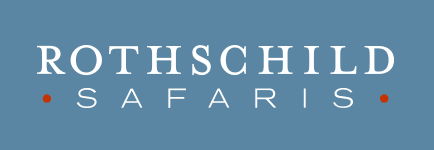Currency is confusing enough, then add gratuities and bartering at markets to the mix and it becomes downright intimidating.
Like many other aspects of Safari, spending money differs from many typical vacations.
But the African Safari economy is thriving and as long as you follow these tips on bringing money to Africa you will enjoy your visit.
Happy Safari Shopping!

1. Advise your Bank
Phone your bank and credit card company before you travel and let them know you’ll be using your card abroad. Charges may be refused for your own security if they originate outside of your home country.
2. Visas on Arrival
In some countries, a visa can be obtained upon arrival. If you choose to use this option ensure that you have the correct amount in cash as most immigration points do not give change.
3. Decide how much cash you will need.
As most Safaris are all inclusive of meals, drinks and park fees (unless you are advised otherwise) spending money will be needed for two main categories.
Incidental purchases
The cost of an all-inclusive Safari usually covers most meals and drinks as well as park fees. This does not mean that the temptation to spend money will be completely removed.
There are many opportunities to spend cash that support local communities. Most lodges and camps have beautifully curated shops filled with lovely African crafts, jewelry, and souvenirs.
You may also visit local markets, towns or organizations where you might wish to purchase something or make a donation.
It is preferable to travel with cash (and preferably in local currency) for these incidental purchases.
(If you are not having your purchases shipped home you will have to consider your baggage allowance as you indulge in shopping.)
Tipping
Tipping is always done exclusively in cash.
Some lodges will offer to advance cash on a card but this will be dependent on the amount of cash currently held in the lodge.
Small denominations are useful for tipping in areas where the local currency is not preferred. It is a good idea to consider how difficult it may be for someone in a remote area to exchange foreign cash.
Tipping is ALWAYS completely optional, and you must feel free to tip as you choose. Our expert team will provide suggestions before you travel. In many lodges one amount is shared between the general lodge staff and an often, an equal amount is then given to your guide (and when a tracker is present the guide shares with the tracker).
4. African currencies
You can purchase South African Rand, Kenyan Shilling, Egyptian Pound, Mauritian Rupee, Seychellois Rupee, and the Zambian Kwacha before you depart. (US Dollars are widely accepted throughout Africa.)
African currencies are volatile and exchange rates may vary wildly.
5. Other money
Credit cards
MasterCard and Visa are all widely accepted not only by most hotels but also at most Safari companies and restaurants. American Express and Diners Club to a much lesser extent. Remember that an ATM will only dispense local currency and if you plan to use a credit card make sure you ask about the exchange rate and fees charged.
Traveler’s checks
These may still be accepted in some places, but they are falling out of fashion fast. Cash is king!
6. Finding Cash
If you are planning to acquire cash once you arrive it is best to do so at the airport when you arrive. US Dollars, Euros and GB Pounds are readily accepted for exchanging money although US Dollar bills dated before 2009 can be difficult to change. For ALL denominations, be sure to bring dollars that are in crisp, pristine condition. Bills that are ripped, overly worn or faded may be rejected by local vendors or money exchange facilities.
You will also get a better exchange rate for higher denomination ($50 or $100) bills.
Travel with a currency converter app to check exchange rates before agreeing to a transaction.
You can also choose to draw cash from an ATM. Do remember that ATM’s have a daily limit (you may want to check this with your bank before departure), they can run out of money and may also swallow your card. Do carry back-ups!
If you decide to use an ATM, be very aware of your surroundings. Choose one in a safe, well-lit area, and make sure not to let anyone stand close enough to see your PIN. Be aware of con artists offering to help you make your withdrawal or asking you for help making theirs. If someone approaches you while you’re drawing money, be careful that they’re not acting as a distraction while someone else seizes your cash. Staying safe in Africa is easy – but common sense is essential.
ATM machines in Ethiopia do not recognize foreign debit or credit cards.
How to Find ATM machines in Africa:
7. Safety
Carry your money in a flat money belt under your clothes and use the hotel or lodge safe for money and other valuables like your passport and tickets.
When you go out, keep the money you plan to use in a visible moneybelt. Carry small denominations to facilitate tipping and handouts.
8. Exchanging money elsewhere
Many camps and lodges will offer exchange services at the cost of a small premium.
Do not be tempted to use the black market to change money on the street. It is illegal and can also be dangerous.
A Note:
Bartering and exchanging jeans and sneakers (especially name brands) for arts, crafts, and souvenirs is common practice in local markets. Bring a few extras along with you (if you have room in your baggage!).
Your Safari Money Checklist

Official African Currencies
BOTSWANA 🇧🇼
Currency is the Pula (BWP / P)
1 P = 100 thebe
EGYPT 🇪🇬
Currency is the Egyptian Pound (EGP / E£ or ج.م or L.E)
1 E£ = 100 piastres, or ersh or 1,000 milliemes
ETHIOPIA 🇪🇹
Currency is the Ethiopian Birr (ETB / Br)
1 Br = 100 cents
KENYA 🇰🇪
Currency is the Kenyan Shilling (KES / KSh)
1 KSh = 100 cents
MADAGASCAR 🇲🇬
Currency is the Ariary (MGA / Ar)
1 Ar = 5 iraimbilanja
MOROCCO 🇲🇦
Currency is the Moroccan Dirham (MAD / Dh)
1 KSh = 100 santimat
MOZAMBIQUE 🇲🇿
Currency is the Metical (MZN / MT)
1 MT = 100 centavos
NAMIBIA 🇳🇦
Currency is the Namibian Dollar (NAD/ N$)
1 N$ = 100 cents
RWANDA 🇷🇼
Currency is the Rwandan Franc (RWF / FRw, and possibly RF or R₣)
1 FRw= 100 centimes
SEYCHELLES 🇸🇨
Currency is the Seychellois Rupee (SCR / Rs)
1 Rs = 100 cents
SOUTH AFRICA 🇿🇦
Currency is the Rand (ZAR / R)
1 R = 100 cents
TANZANIA 🇹🇿
Currency is the Tanzanian Shilling (TZS / Tsh)
1 Tsh = 100 cents
UGANDA 🇺🇬
Currency is the Ugandan Shilling (UGX / USh)
1 USh = 100 cents
ZAMBIA 🇿🇲
Currency is the Kwacha (ZMW / K)
1 ZK = 100 ngwee
ZIMBABWE 🇿🇼
Recently introduced currency is the RTGS Dollar. Read about it HERE.




